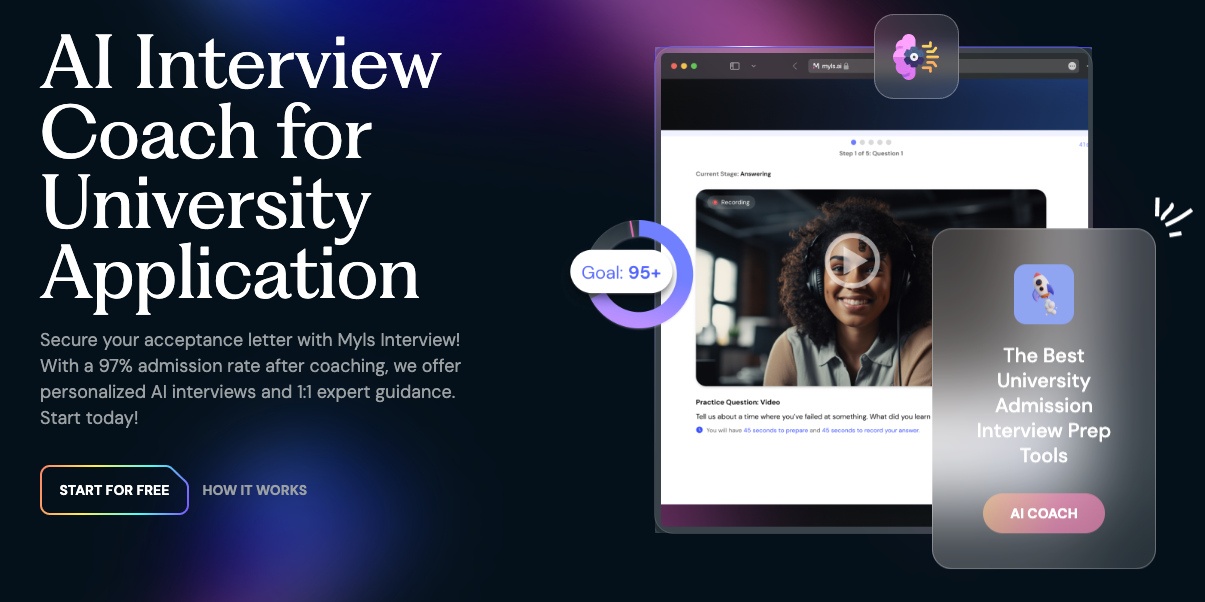What Makes a ‘Top University’ for You? It’s More Than Rankings
University rankings highlight prestige—but not personal fit. This blog explores what truly matters when choosing where to study, from teaching style to student life. Learn how Myls Interview helps you go beyond the numbers to find the best university for you.

Why Rankings Don’t Tell the Whole Story
When most students think of the “top universities”, they picture prestigious names or high global rankings. While those lists can offer a rough idea of academic reputation, they don’t tell you everything about whether a university is right for you. The truth is, what makes a university “top” isn’t just its QS or Maclean’s ranking—it’s how well it matches your goals, your learning style, and your life.
In this blog, we’ll explore the factors that truly define a great undergraduate experience—beyond numbers. Whether you’re considering a Bachelor’s degree in business, science, or the arts, this guide will help you define your own version of a top university and make an informed, confident choice.
Rankings vs. Real Fit: What’s the Difference?
What Rankings Measure
University rankings typically consider:
- Research output
- Academic reputation
- International faculty and student ratios
- Citations per faculty
- Employer reputation
These are useful for graduate school or international visibility—but they don’t always reflect the undergraduate experience.
What Rankings Miss
For undergrads, the more important factors often include:
- Class sizes and teaching quality
- Student support services
- Co-op or internship access
- Campus environment
- Flexibility to switch majors
- First-year experience and retention rates
A school that looks amazing on paper might not match how you learn or what you want out of your university years.
What Really Makes a “Top” University for You?
1. Academic Programs That Fit Your Interests
A great university for engineering might not be the best for social sciences. Instead of focusing only on school name, ask:
- Is this university strong in my intended major?
- Does it offer specializations or minors I’m interested in?
- How are intro courses taught—by professors or TAs?
- Are labs, tutorials, or seminars integrated into the curriculum?
A top program in your field will challenge and support you from day one.
2. Co-op, Internship, and Research Opportunities
Experiential learning is one of the most valuable parts of any undergraduate degree. Look for schools that offer:
- Built-in co-op or internship terms
- Undergraduate research assistant roles
- Access to industry partnerships or incubators
- Career services that help connect students with work experience
Programs like those at McMaster Engineering is known not just for academics—but for launching students into real-world roles before graduation.
3. Teaching Style and Class Sizes
Some students thrive in large lectures. Others prefer small seminars and more discussion-based learning. Ask:
- What is the average class size in first-year courses?
- Are professors accessible outside of lectures?
- Is academic support available (e.g., writing centres, study groups, office hours)?
Choosing a university that matches your learning style is just as important as the curriculum.
4. Campus Culture and Student Life
The social side of university plays a big role in your overall success and happiness. Think about:
- Is the campus urban or residential?
- What types of clubs, communities, and support systems are in place?
- Are students competitive, collaborative, or community-driven?
- What’s the housing, dining, and commuting situation like?
Top universities aren’t just academically strong—they feel like a place where you can belong.
5. Flexibility and Transfer Options
Especially if you’re undecided, look for universities that allow you to:
- Switch majors or add minors easily
- Take courses from different faculties
- Participate in cross-disciplinary programs
- Get credit for prior learning or AP/IB courses
A top university should support you in evolving your interests—not box you into a path too soon.
Other “Top” Factors That Might Matter to You
- Geographic location: Do you prefer to be close to home, in a big city, or near nature?
- Class schedule styles: Are you looking for intensive block schedules, year-long courses, or flexibility?
- Study abroad opportunities: Would you like to do an exchange semester during your degree?
- Postgraduate outcomes: What percentage of grads find work in their field or pursue further education?
These personal factors matter more than you might think—and they vary widely across top universities in Canada and abroad.
How to Research Your Best-Fit University
Don’t just rely on rankings. Use these tools instead:
- Virtual campus tours on YouTube or university sites
- Student testimonials and Q&A sessions
- Reddit threads and forums like r/UBC or r/UniversityofToronto
- Course calendars and syllabi for sample first-year courses
- LinkedIn alumni searches to see what grads are doing now
Doing this type of research helps you go beyond the brand and find out if the environment really works for you.
How Myls Interview Helps You Choose the Right University for Your Goals

At Myls Interview, we help students look past the hype and make grounded, informed decisions about where to study. Through personalized academic advising and university planning, we’ll help you:
- Evaluate programs not just by name—but by fit
- Match your academic strengths and interests to target programs
- Compare co-op, research, and career support at top universities
- Prepare for applications with tailored tutoring and strategy
- Make final decisions with confidence—because it’s about more than prestige
Whether you’re choosing between international schools, we’ll help you find the right undergraduate degree at a university that works for you.
Sign up and Book your session today and let Myls Interview help you find your top university—not just the most famous one.




